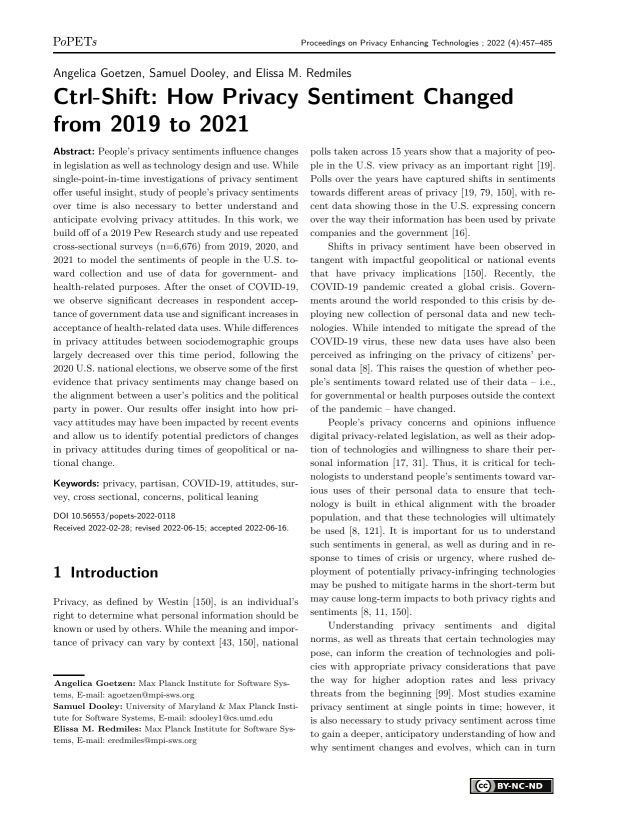Ctrl-Shift: How Privacy Sentiment Changed from 2019 to 2021
Authors: Angelica Goetzen (Max Planck Institute for Software Systems), Samuel Dooley (University of Maryland & Max Planck Institute for Software Systems), Elissa M. Redmiles (Max Planck Institute for Software Systems)
Volume: 2022
Issue: 4
Pages: 457–485
DOI: https://doi.org/10.56553/popets-2022-0118
Abstract: People’s privacy sentiments influence changes in legislation as well as technology design and use. While single-point-in-time investigations of privacy sentiment offer useful insight, study of people’s privacy sentiments over time is also necessary to better understand and anticipate evolving privacy attitudes. In this work, we build off of a 2019 Pew Research study and use repeated cross-sectional surveys (n=6,676) from 2019, 2020, and 2021 to model the sentiments of people in the U.S. toward collection and use of data for government- and health-related purposes. After the onset of COVID-19, we observe significant decreases in respondent acceptance of government data use and significant increases in acceptance of health-related data uses. While differences in privacy attitudes between sociodemographic groups largely decreased over this time period, following the 2020 U.S. national elections, we observe some of the first evidence that privacy sentiments may change based on the alignment between a user’s politics and the political party in power. Our results offer insight into how privacy attitudes may have been impacted by recent events and allow us to identify potential predictors of changes in privacy attitudes during times of geopolitical or national change.
Keywords: privacy, partisan, COVID-19, attitudes, survey, cross sectional, concerns, political leaning
Copyright in PoPETs articles are held by their authors. This article is published under a Creative Commons Attribution-NonCommercial-NoDerivs 3.0 license.

